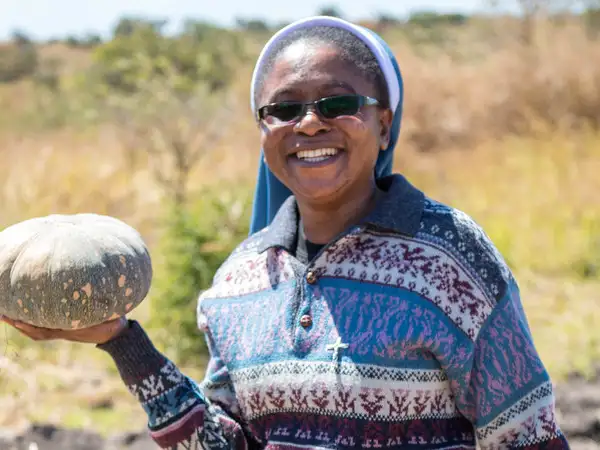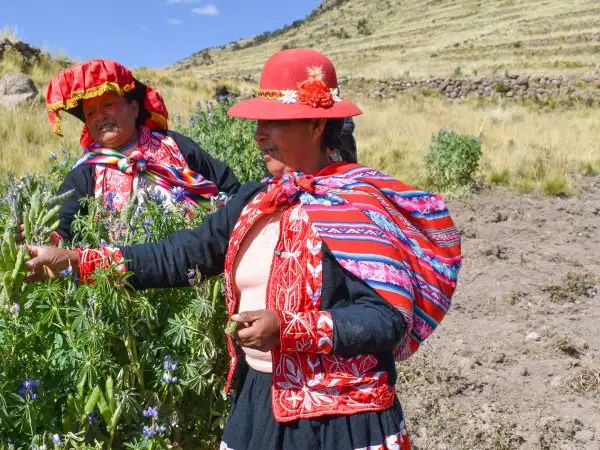


The Sisters of the Sacred Hearts of Jesus and Mary work with small-scale farmers, helping them to grow crops that are resistant to drought. (Photo credit: Ben White)
Faith and religious practice are central to most people’s lives in the Global South. Religious institutions are at the heart of society, the cornerstones of the community, with a long reach into even the most remote communities. Religious leaders hold people’s trust and often have authority and influence where state and local officials do not.
Understanding the role of faith and faith-based organisations is therefore central to effective development and humanitarian response, and to building mutually beneficial partnership across a wide range of issues and actors.
Drawing from dozens of inspiring examples in Africa, Latin America, Asia, the Middle East and the UK, this report outlines the distinctive contribution of the Catholic Church in different areas of development and humanitarian response, based on its local presence and involvement in people’s lives, access to the hardest to reach people and communities, commitment to the Common Good and speaking out for justice, and its place within local communities which enables it to broker dialogue for social change. While recognising the Catholic Church is often active in all areas at once, the report outlines seven clear ways it makes a lasting difference to people’s lives.
Seven ways the Catholic Church makes a difference
Rapid, local and inclusive humanitarian response
Influencing social norms and behaviour
Peacebuilding, mediation and reconciliation
Strengthening democratic governance through citizen participation
Speaking truth to power, witnessing and accompanying suffering
Providing quality and inclusive healthcare and education
Supporting sustainable livelihoods
It offers ways forward for the UK government – in particular the Foreign, Commonwealth and Development Office (FCDO) - to work more effectively with faith actors in the future, including:
Implement an evidence-based learning programme with faith actors about what has worked in the past, including in Covid-response.
Ensure deeper and ongoing engagement with faith leaders and faith groups at local and national level through UK Missions.
Develop a strategic approach to working with faith actors, including a faith advisory group.
Provide long-term support for effective partnerships with faith actors, focusing on areas such as peacebuilding and humanitarian response where they are sometimes the only actors who can play an effective role.
Resources


The distinctive role of the Catholic Church in development and humanitarian response - executive summary

[Français] Le rôle singulier de l’Église catholique dans le développement et la réponse humanitaire

[Español] El papel distintivo de la Iglesia católica en las respuestas humanitarias y de desarrollo - resumen ejecutivo
Policy and research
CAFOD's policy team provides briefings, reports and research on our advocacy and lobbying work, plus materials to support our campaigns.


